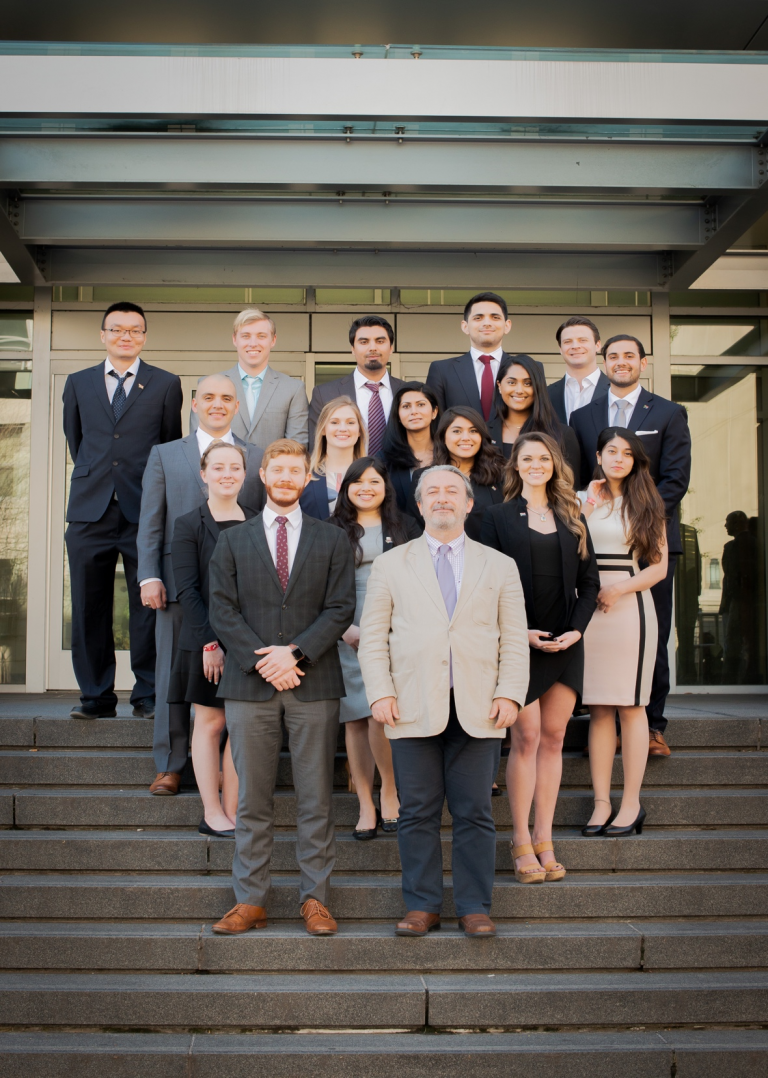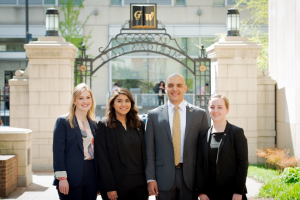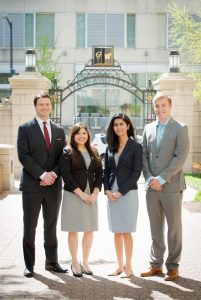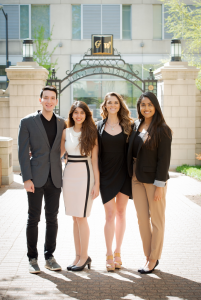Blog post written by Sean Soni
Upon arrival to our destination CAP Country, we were greeted with a warm and hearty welcome dinner at Pepenero, one of the local gems in Cape Town. On the way over to the Pepenero, our tour guide showed us the District 6 area, an area which was plagued by apartheid and a highly controversial event which preceded the vacant land. It was a sobering experience to hear the pains of many of the “colored” individuals who were wrongfully stripped of their homes and belongings due to a discriminatory governmental policy.
The dinner was incredibly delicious, however the waiters and waitresses who happily served plate after plate were far more intriguing to learn about. The waiters and waitresses were not South African, but in fact from Zimbabwe, one of the many citizens of neighboring African countries who desperately wanted to be a part of the emerging South African economy.
One of the most intriguing company visits in Cape Town thus far was with Sealand Gear, a sustainable bag designer who aggressively focused on emphasizing down cycle sourcing in their production cycle. This company prides itself in using industrial materials such as old boat sails and other industrial fabrics which are no longer in use to create some of the most unique, colorful and functional bags on the market today. Creating flashy and fashionable bags is not the only thing this company was useful for – they promoted the cultivation of local talent pools and hired and trained members of the underserved communities to empower the communities of Cape Town while making a profit. The CEO’s tour was so convincing that many of our classmates ended up purchasing items after the tour of the Sealand Gear headquarter facilities.
After four days of residing in the beautiful city of Cape Town, our CAP crew is on our way to the airport where we will fly to Johannesburg (described by many as the “New York City” of South Africa). In Johannesburg, we will meet several of the local movers and shakers of the energy industry, aviation industry, and entrepreneurship.
Thus far, I can confidently comment on the food, local customs, and some of the exposure to the less advantaged areas of the country of South Africa. The food scene in Cape Town is extremely diverse and incredibly delicious. You can find local treasures on Long Street such as Mama Africa and even undiscovered twists on the American burger at cozy venues like IYO Burger. In South Africa, it is customary to acknowledge the various ethnic groups as “whites”, “blacks” and “colored” people. Prior to arrival, we read that South Africa is plagued by poverty and a disturbing income gap, leading to the various racial tensions that we read about in global reports. The reality was actually much worse than I expected. One block away from our hotel was one of the many slums which was scattered across the city. Impoverished residents would frequently approach us for money and donations and the huge unemployment rate had a lot to do with this feature of the city. I must, however, end with a positive note – with a country with so many problems, one can only imagine the possibilities of development and human advancement. The wheels in the minds of a majority of our classmates are starting to spin as we see the “real” Cape Town and Johannesburg.





